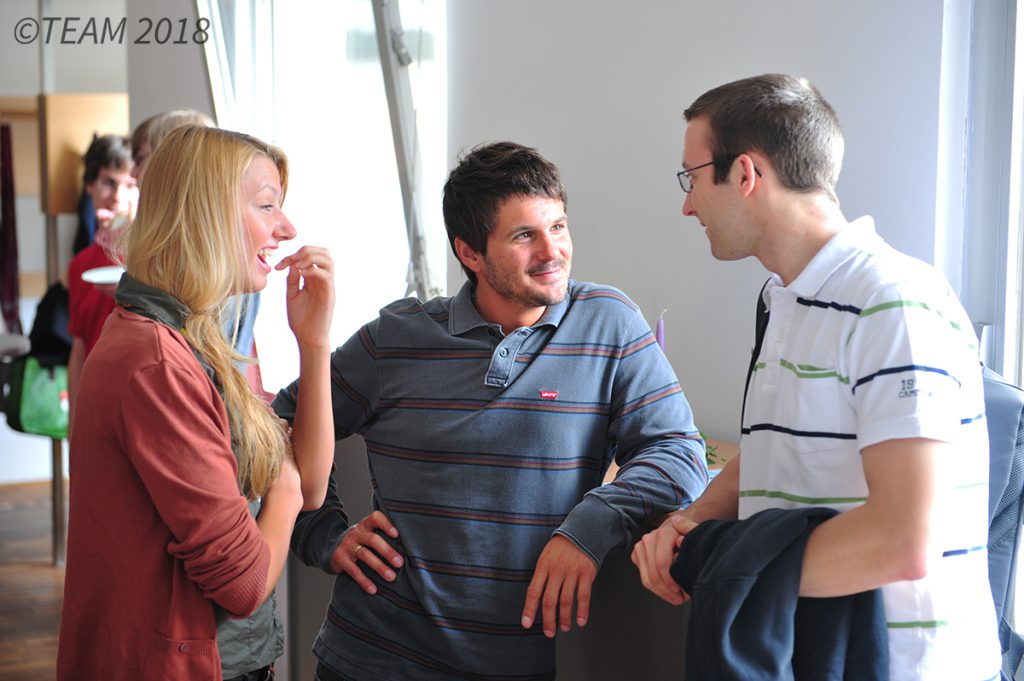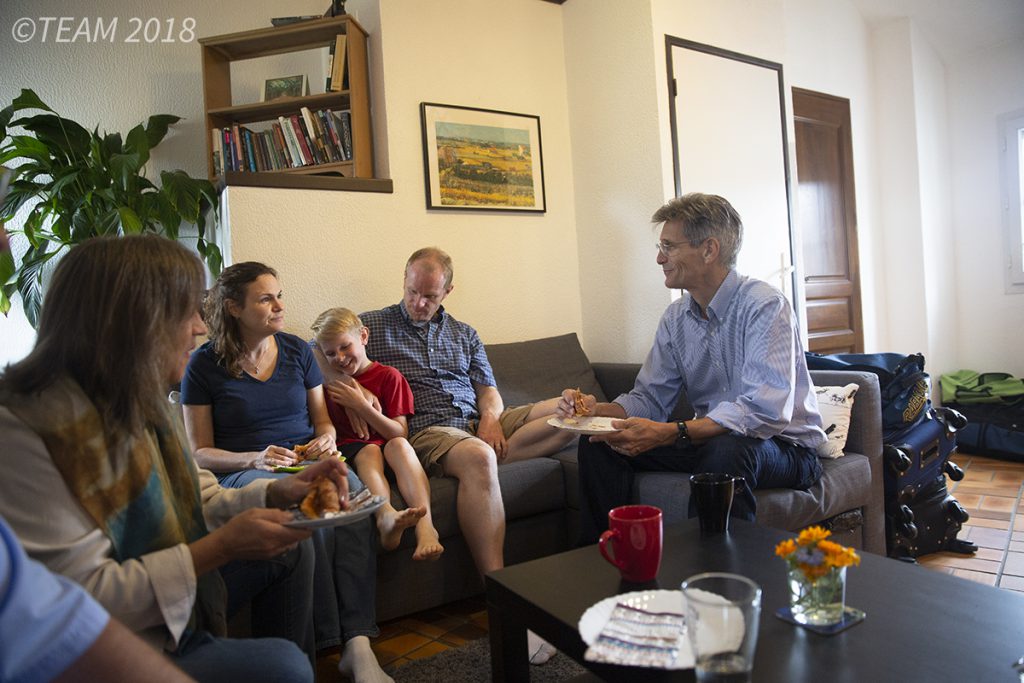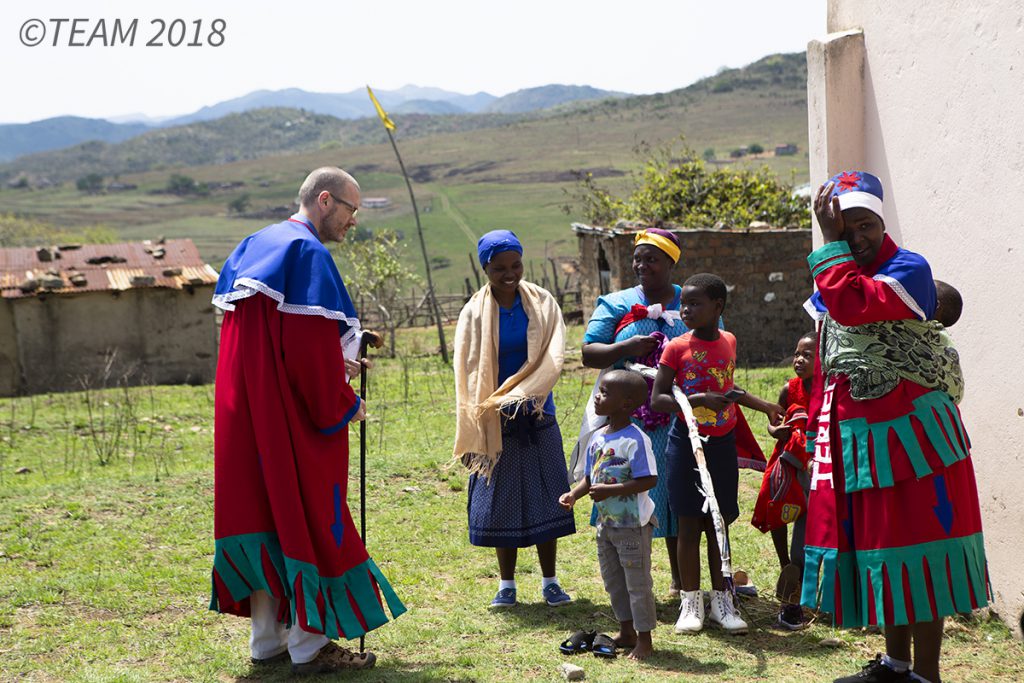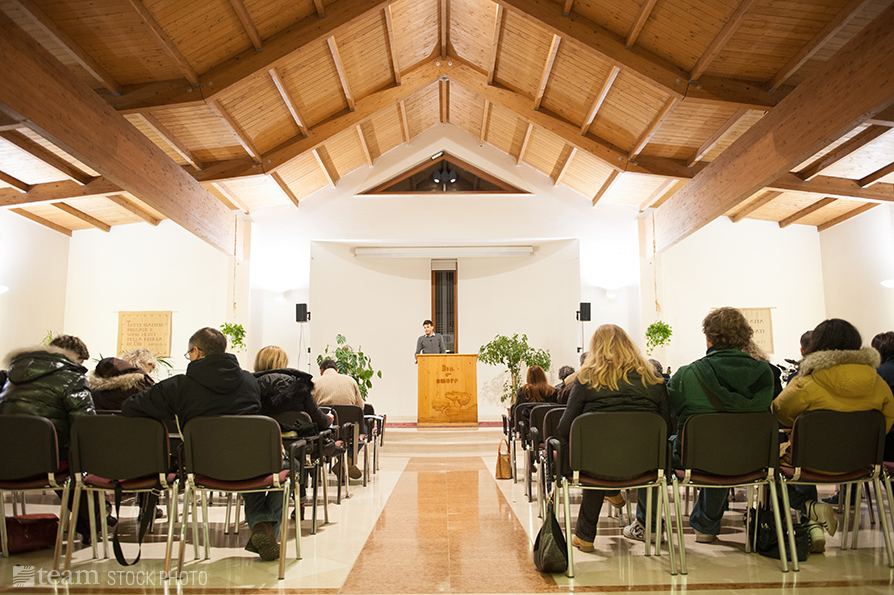
Sending Churches
4 Ways Busy Pastors Can Engage in Missions
July 25, 2019
by Anna Price

Yes, you want your church to engage in missions.
But you also want to get home before 9 p.m. at least one day this week, right?
As a pastor, you likely have a long to-do list and are an expert at balancing priorities. As one mentor told me when I first became a children’s pastor, “It’s all about spinning plates, and most weeks, you are deciding which plate is OK to fall and break.”
While most pastors would agree they want their church to engage in missions, it’s easy for missions to become an afterthought or goal for after things are taken care of here.
But if we truly believe God has called the church to send missionaries, how can a busy pastor practically arrange their time and schedule to help the church engage in missions?
Missions is not a program, it’s the purpose.
When Bradley Bell first became lead pastor at Antioch Church in Louisville, Kentucky, the church knew they were hiring the guy who literally wrote the book (under pen name Zach Bradley) on what it means to be a sending church.

Bradley Bell is the lead pastor at Antioch Church and the author of the book The Sending Church Defined.
After sending of 25 percent of their congregation out to be missionaries, though, Bell saw a church that had said yes to many missions opportunities without truly taking the truth of the Gospel to heart. In short, the church was tired.
The church’s missions program was thriving, but the 75 percent of the church not on the mission field wasn’t equipped to engage in practical evangelistic or discipleship conversations with their neighbors.
For an entire year, Antioch called a Sabbath where they didn’t do any large outreaches or new programming. Instead, leaders saturated their congregation with the truth of the Gospel from the stage, in small groups and personal discipleship.
As the truth of the Good News took root in the members, God brought new believers into Antioch’s family through the efforts not of a church program, but through congregants personally sharing the Good News.

Christians sharing the Gospel with people around them is often more impactful than any large outreach program.
If your church isn’t “doing” missions, the answer may not be to just start a missions committee or plan a trip. While adding events to the calendar can give the appearance of missions, it doesn’t mean your congregation understands their part in God’s story to the nations. Instead, use your leadership position to saturate your congregation with the truth of the Gospel and the privilege we have to join God in His mission.
Look at how your mission statement applies to the nations.
As a former missionary himself, Bell took his heart for understanding culture into his role as lead pastor.
“The temptation when you’re the new guy is to scrap everything and start over,” Bell says, “but to me, if we want to honor this congregation, let’s build on the foundation that has been laid instead of importing a foreign culture or language.”
Bell looked at the church’s already established key identities for its members: eyewitnesses, disciples, worshippers, family and blessing. Looking at those identities, he saw there is a practical missional overflow for each one.
“A practical outworking of an eyewitness is evangelism, so we want to teach a simple, reproducible tool for sharing the Gospel,” Bell says. “The key is simple and reproducible. Why can’t we teach all of our members, men and women, young and old?”

It’s important to create a missions strategy that is simple, reproducible and can be taught to people of all ages.
He repeated this process for the other identities, and the church is now spending half a year focusing on each one of their key identities. During that time, sermons, trainings and small groups will be focused on equipping each member to live out that identity both locally and globally.
Partner with other churches.
A huge joy in our Christian faith is that we are not in this alone. Likely, there are other churches in your area that also want to engage in missions!
Highland Baptist Church in Denton, Texas, wanted to plan a mission trip to help its members serve outside the church walls. Highland only has one full-time staff member and didn’t have a volunteer able to plan a trip from scratch.
Luckily, they connected with Semihan Church, a local Korean church who invited Highland to join them on their yearly mission trip to a local Indian reservation. Semihan Church had an established relationship, schedule and training, in which they graciously let Highland participate. By sharing their resources with Highland, they were able to help twenty new people get a small picture of cross-cultural service.
Missions agencies like TEAM can also help pastors with practical matters of sending — from helping you discern if someone is called to missions to offering cultural and fundraising training. Take advantage of the resources your missions agency can offer by contacting their church engagement staff!
Spend Time Overseas
Bell shares that if there was one piece of advice he would give to pastors, it would be to spend time serving overseas. He says, “It opens your eyes to a whole realm of God’s kingdom and missions you will never get in local church ministry.”
This may seem counterintuitive. After all, if you are busy, how can you take a week or even a month to visit a mission field?

Going on a short-term mission trip will help you to understand the importance of missions in a new way, and the perspective you gain will be well worth the time you spent.
But the impact of such a trip goes far beyond the actual time spent on the field. Bell shares, “My time overseas informs the diversity of people I am able to relate to. I have had to step out of my own worldview and enter into someone else’s,” something he never would have experienced had he only served in the States.
Pastors who visit missionaries and ministries on the field are able to more specifically pray and share with their congregation about the work their church is involved in. They get to learn how missionaries are engaging their local communities and share those insights with their home church.
For more information about Bradley Bell’s work helping churches engage in missions, check out The Upstream Collective. Bradley Bell is leading a pastor’s cohort for lead pastors looking to engage in missions. Check out their website to explore this great opportunity.
We know you have a lot of things competing for your time and attention as a pastor. As you disciple your congregation in their role in missions, know you are not alone. TEAM is here to help your church engage in missions. If you’re interested in connecting with a certain ministry — or just need help exploring the possibilities — send us a message! We’d love to help you build a solid missions plan for your church.
Related articles


